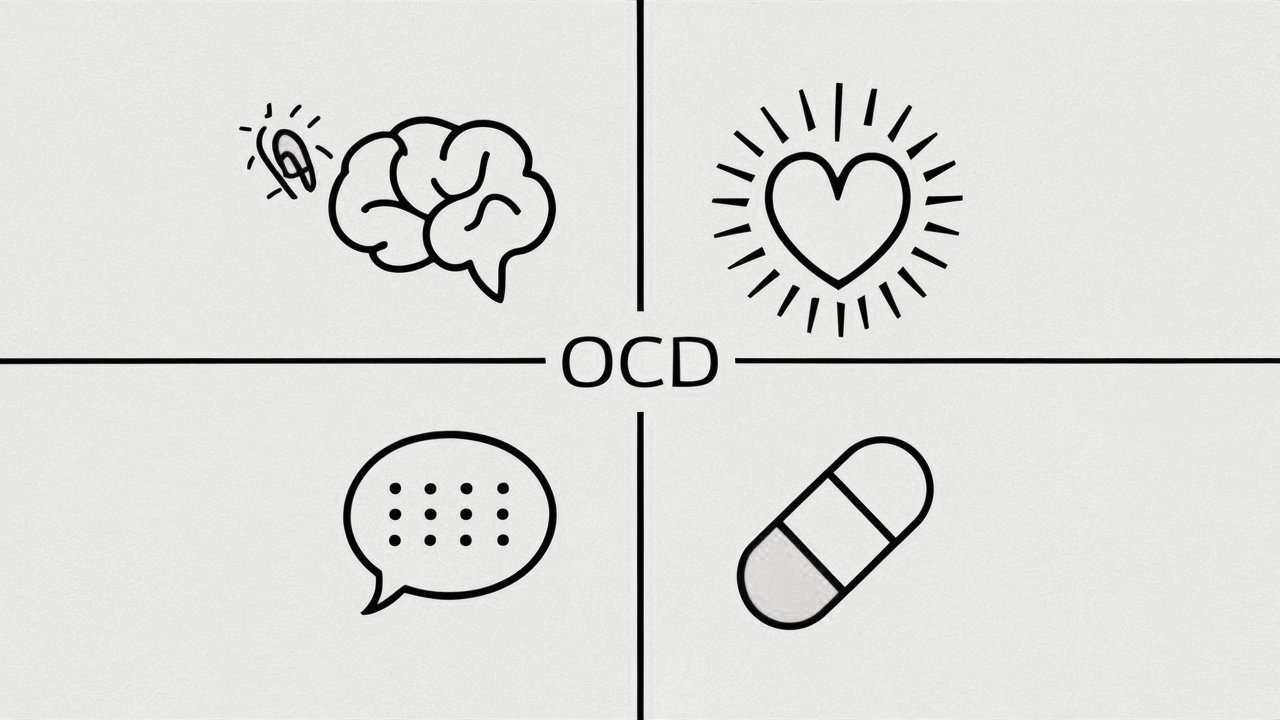Understanding Obsessive-Compulsive Disorder
Obsessive-Compulsive Disorder (OCD) is a mental health condition that affects millions of people worldwide. It is characterized by persistent, unwanted thoughts (obsessions) and repetitive behaviors (compulsions). This article aims to provide a comprehensive understanding of OCD, covering its symptoms, severity levels, impact on daily life, and the most effective forms of therapy.
What Are the Symptoms of OCD?
OCD symptoms can vary widely from person to person but generally fall into two categories: obsessions and compulsions. These symptoms can cause significant distress and interfere with daily functioning.
Obsession Symptoms
Intrusive Thoughts - Persistent, unwanted thoughts or images that cause anxiety or distress.
Fear of Contamination - Excessive worry about germs, dirt, or illness.
Need for Order - An overwhelming need for things to be symmetrical or in a specific order.
Aggressive Thoughts - Fears of harming oneself or others.
Sexual Thoughts - Unwanted, intrusive sexual thoughts or images.
Compulsion Symptoms
Washing and Cleaning - Excessive hand washing, cleaning, or showering.
Checking - Repeatedly checking things, such as locks, appliances, or switches.
Counting - Compulsively counting items or steps.
Repeating - Repeating actions or words a certain number of times.
Ordering - Arranging items in a specific, precise way.
What Are the Different Severity Levels of OCD?
OCD can range from mild to severe, and the severity can fluctuate over time.
-
Symptoms are present but do not significantly interfere with daily activities. The person may experience occasional distress.
-
Symptoms cause noticeable distress and interfere with daily activities. The person may spend considerable time on obsessions and compulsions.
-
Symptoms are highly disruptive, causing severe distress and significantly impairing daily functioning. The person may spend several hours a day on obsessions and compulsions.
What Does an OCD Episode Look Like?
Imagine waking up feeling anxious about the cleanliness of your home. You spend hours cleaning every surface, even though you know it was clean the night before. Despite your efforts, you cannot shake the feeling that there are still germs present.
You wash your hands repeatedly until they become red and sore. Later, you check the locks on your doors multiple times before leaving for work, worried that you might have left one unlocked. This ritual makes you late for work and increases your anxiety.
What Is It Like for Someone Who Has OCD?
Living with OCD can be incredibly challenging. Individuals with OCD often experience constant anxiety, persistent worry, and fear related to their obsessions. Significant time is spent on compulsions, interfering with work, school, and social activities.
Emotional distress, feelings of shame, guilt, or frustration about their inability to control their thoughts and behaviors are common. Avoidance of situations that trigger obsessions often leads to social isolation, and relationships can be strained due to the time and energy spent on managing symptoms.
How Can OCD Affect Your Life?
The impact of OCD on one's life can be profound, affecting various aspects of well-being. Physical health can be affected by repetitive behaviors like excessive washing, which can lead to physical harm, such as skin irritation or injury.
Mental health can also be impacted, with the constant anxiety and distress contributing to other mental health issues, such as depression or generalized anxiety disorder.
Work and education may suffer due to difficulty concentrating, frequent absences, or decreased productivity. Social life can be negatively impacted by avoidance behaviors and social withdrawal, leading to loneliness and difficulty maintaining relationships.
Daily functioning can also be significantly disrupted by time-consuming rituals and obsessions, making it difficult to maintain a routine.
What Are the Most Effective Forms of Therapy for OCD?
Effective treatment for OCD typically involves a combination of therapies and, in some cases, medication.
Cognitive-Behavioral Therapy (CBT)
This therapy, particularly Exposure and Response Prevention (ERP), is specifically designed for OCD. It involves gradually exposing individuals to their feared thoughts or situations while preventing the compulsive behavior. Over time, this helps reduce anxiety and the urge to perform compulsions.
Medication
Selective Serotonin Reuptake Inhibitors (SSRIs) are commonly prescribed antidepressants that can help reduce OCD symptoms by increasing serotonin levels in the brain. Tricyclic Antidepressants (TCAs), particularly clomipramine, can also be effective for OCD.
Mindfulness and Stress Management
Mindfulness-Based Cognitive Therapy (MBCT) combines cognitive therapy techniques with mindfulness strategies to help individuals become more aware of their thoughts and feelings without being overwhelmed by them. Relaxation techniques, such as deep breathing, progressive muscle relaxation, and meditation, can help reduce overall anxiety and improve coping skills.
Support Groups and Self-Help
Connecting with others who have OCD can provide a sense of community and reduce feelings of isolation. Educational resources, books, and online tools can offer additional support and coping strategies.
Conclusion
Obsessive-Compulsive Disorder is a complex and challenging condition, but with the right treatment and support, individuals can lead fulfilling lives. Recognizing the symptoms, understanding the impact on daily life, and seeking effective therapy are crucial steps in managing OCD. If you or someone you know is struggling with OCD, reach out to a mental health professional for guidance and support.
AUTHOR
MEET THE SBCS TEAM
At Space Between Counseling Services (SBCS), we're a team of diverse therapists passionate about enriching your mental health through insightful articles. Licensed across MD, NM, DE, DC (District of Columbia), and FL, we blend expertise in anxiety, depression, trauma, and more, striving for inclusivity in every piece we write.
Our collective voice aims to guide, educate, and support you through modern life's complexities.



